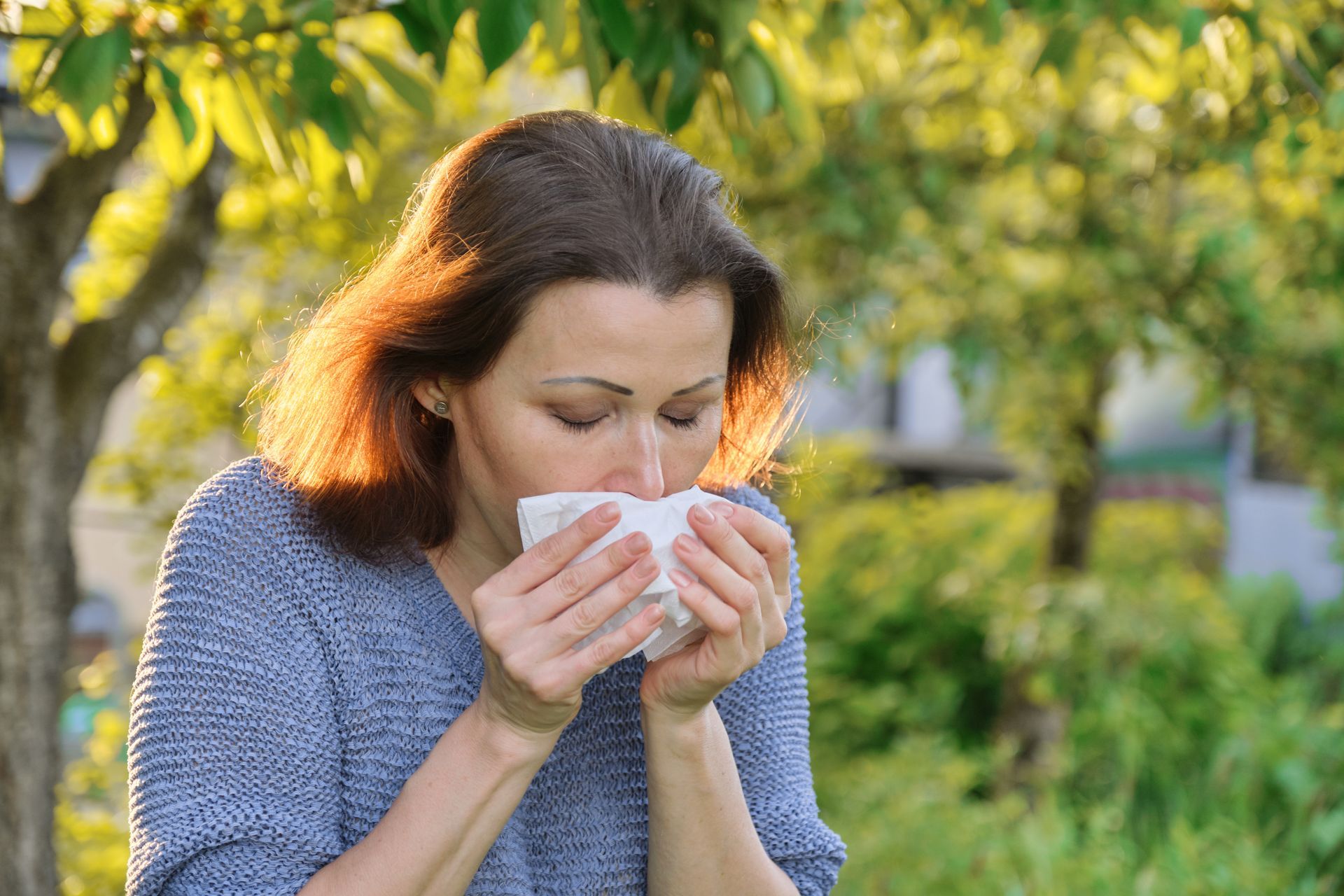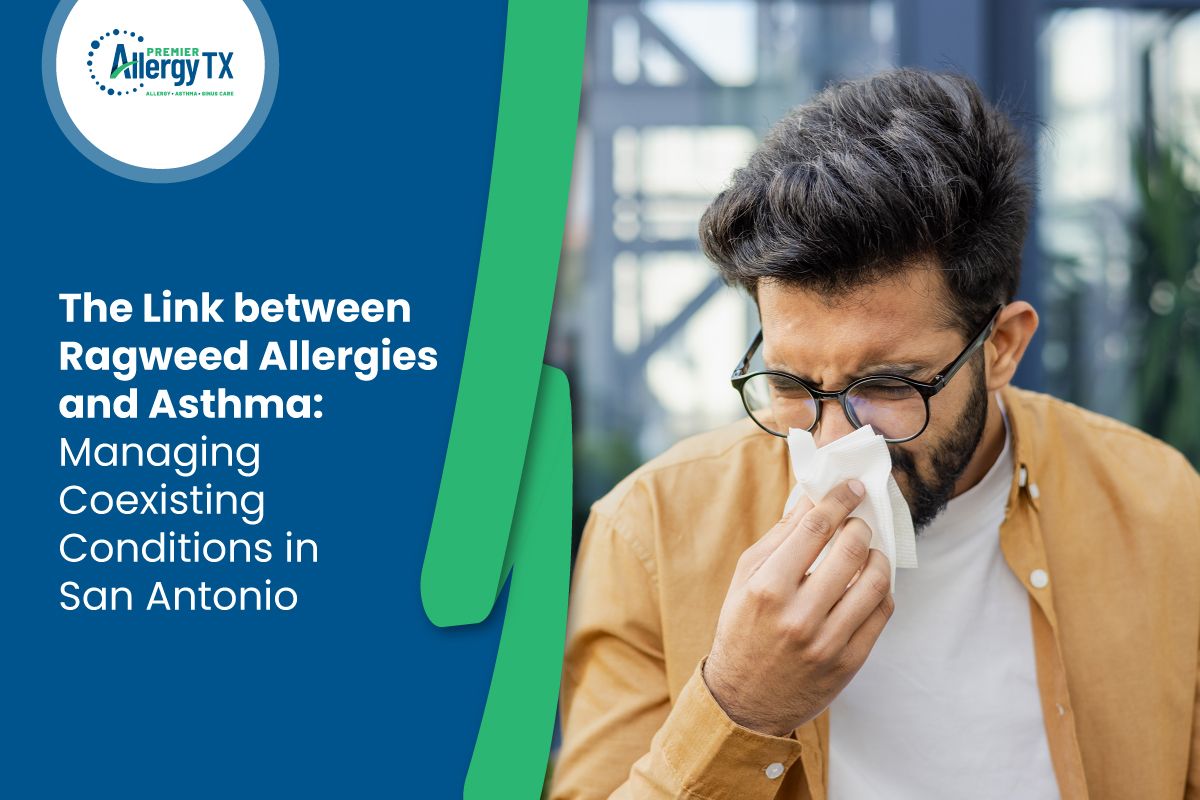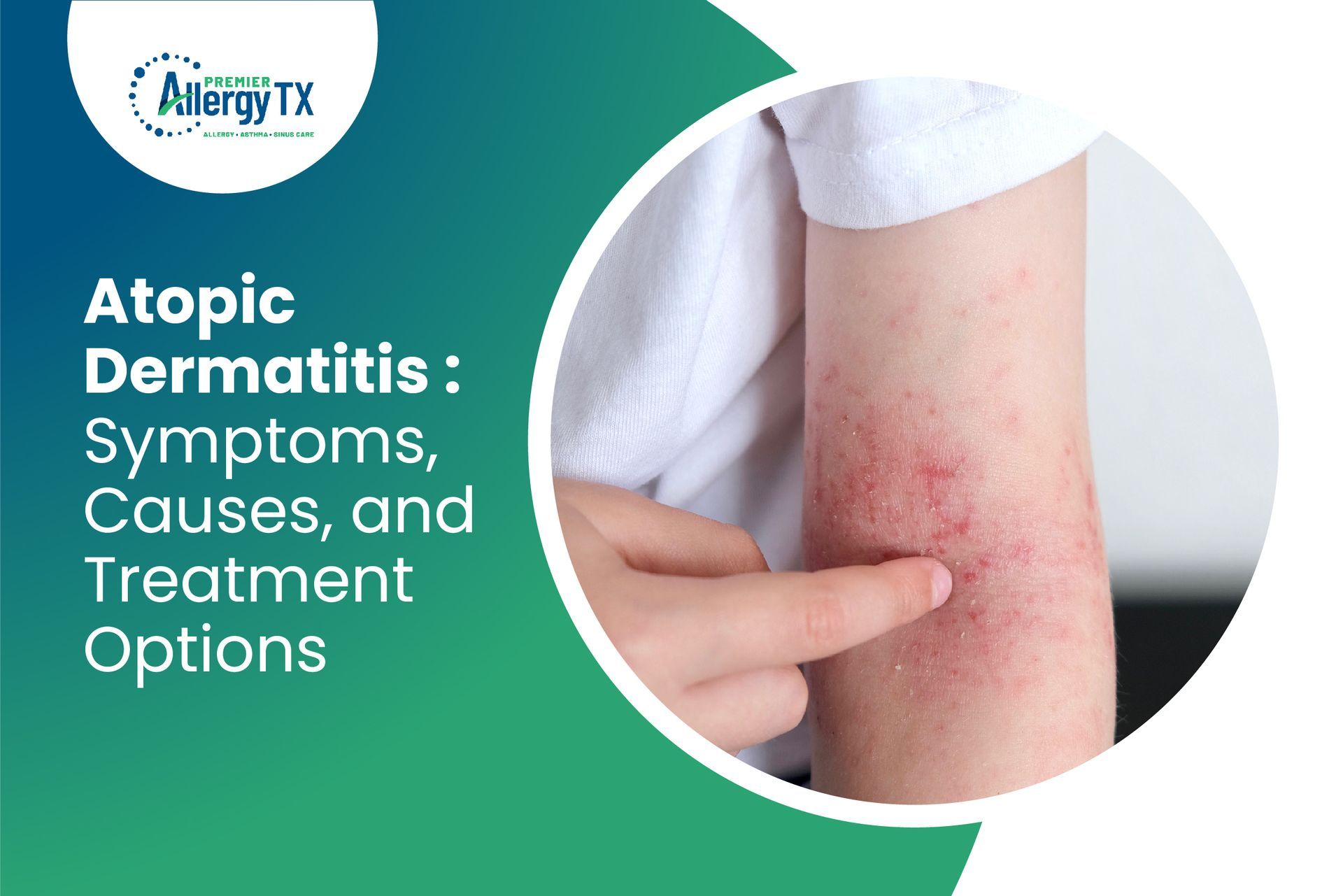Food Allergy Mysteries: Is Your Plate the Culprit?

Imagine suddenly struggling to breathe while enjoying a meal with friends or family. Many individuals with food allergies constantly fear this scenario. In Texas, where the allure of Tex-Mex and barbecue reigns supreme, it’s crucial to properly manage food allergies and never let them get in the way of enjoying the state’s amazing cuisine. This blog is your ultimate guide to navigating food allergies, helping you serve safety and peace of mind on every plate.
Unveiling Common Food Allergies
The challenge in dealing with different food allergies is that allergenic food items or ingredients are very common. Many everyday foods can trigger allergic reactions. Here are some of them:
- Peanuts
Peanut allergies are among the most common and severe food allergies. When an individual with a peanut allergy ingests peanuts or peanut-based products, their immune system mistakenly perceives peanut proteins as threats. This leads to the release of histamine, which causes allergic reactions.
2. Shellfish
Shellfish allergies are triggered by crustaceans (shrimp, crab, and lobster) or mollusks (clams, mussels, and oysters). Allergy symptoms arise when the body's immune system overreacts to proteins present in shellfish, resulting in reactions ranging from minor itching to life-threatening anaphylaxis.
3. Dairy
Dairy allergies involve an adverse immune response to proteins in milk and dairy products. Casein and whey proteins are the primary culprits. These proteins may trigger allergic reactions such as hives, digestive issues, and respiratory symptoms when consumed.
4. Eggs
Egg allergies commonly affect children and can cause reactions ranging from mild to severe. The immune system reacts to proteins in the egg whites or yolks, leading to symptoms such as skin rashes, gastrointestinal discomfort, and respiratory problems.
5. Wheat
Proteins in wheat grains, such as gluten, trigger wheat allergies. When individuals with wheat allergies consume wheat-based products, they may experience digestive distress, skin reactions, and respiratory issues.
6. Soy
Soy allergies involve an immune reaction to proteins in soybeans and soy-based products. Consuming soy can lead to hives, swelling, digestive problems, and potentially severe symptoms.
Understanding these common food allergies and how they trigger allergic reactions is essential for individuals and caregivers to navigate dietary choices safely and prevent potential health risks.
Finding Food Allergies

Food allergies may manifest in various ways, often causing discomfort and sometimes even life-threatening reactions. Recognizing the symptoms is crucial for timely intervention and management. Here are the key signs to watch out for:
- Skin Reactions
- Hives: Raised, itchy welts on the skin may appear suddenly after consuming a food item or ingredient that elicits an allergic response.
- Eczema: Persistent dry, itchy, inflamed patches of skin, widespread in infants and young children with food allergies.
- Itching or Tingling: Uncomfortable sensations on the skin, lips, mouth, or throat shortly after eating a trigger food.
- Gastrointestinal Issues
- Nausea and Vomiting: Experiencing nausea and bouts of vomiting following the consumption of foods that trigger allergies.
- Diarrhea: Loose or watery stools that occur shortly after eating certain foods, indicating a potential allergic reaction.
- Abdominal Pain: Pain or unease in the abdomen, frequently paired with feelings of bloating or excessive gas.
- Respiratory Symptoms
- Sneezing or Runny Nose: Allergic rhinitis, characterized by sneezing, congestion, or a runny nose, may occur after exposure to allergenic foods.
- Coughing or Wheezing: Breathing difficulties, coughing, or wheezing may indicate a more severe allergic reaction affecting the respiratory system.
- Shortness of Breath: Experiencing chest tightness or difficulty breathing soon after consuming allergenic foods necessitates prompt medical intervention.
- Cardiovascular Symptoms
- Rapid Heartbeat: An elevated heart rate or palpitations can occur, especially in severe cases.
- Drop in Blood Pressure: A sudden decrease in blood pressure can lead to dizziness, lightheadedness, or loss of consciousness.
- Other Symptoms
- Swelling: Challenges in speaking or swallowing may accompany the rapid onset of swelling in the lips, tongue, face, or throat.
- Anaphylaxis: An extreme and potentially life-threatening allergic reaction, anaphylaxis can present with various symptoms impacting different bodily systems such as the skin, respiratory, cardiovascular, and gastrointestinal systems. Immediate administration of epinephrine is crucial. Anaphylaxis is a medical emergency and should not be left untreated.
The Role of Allergy Testing

Allergy testing is crucial in identifying specific allergens responsible for triggering allergic reactions in individuals. At Premier Allergy Texas, we understand the importance of accurate allergy testing in diagnosing and managing food allergies effectively.
Types of Allergy Testing
- Skin Prick Test
A skin prick examination entails administering a small quantity of allergen extract onto the skin and puncturing the surface to enable the allergen's entry. If an individual is allergic to the substance, a raised bump will emerge at the examination site within 15–20 minutes.
2. Blood Test (Allergen-Specific IgE Test)
Blood tests measure the presence of allergen-specific antibodies (IgE). By analyzing IgE levels in response to specific allergens, blood tests may help identify potential food allergies.
Allergy testing helps pinpoint the specific allergens triggering allergic reactions, allowing for targeted treatment and avoidance strategies. With the results of allergy tests, our allergists can create customized treatment plans that address each person's specific situation.
Read More:
Food Allergies: What Tests Can a Food Allergy Specialist Offer?
Navigating Foods That Help Allergies
While it's essential to steer clear of foods that can trigger allergies, including specific items in your diet might assist in easing symptoms and promoting overall well-being. Here are some foods that may provide relief for allergy sufferers:
- Fatty Fish (e.g., Salmon, Mackerel, Trout)
- Fatty fish, abundant in omega-3 fatty acids, contain anti-inflammatory attributes that diminish allergic responses and support respiratory well-being.
- Leafy Greens (e.g., Spinach, Kale, Swiss Chard)
- Leafy greens are rich in vital nutrients, including vitamins, minerals, and antioxidants. These can enhance the immune system and decrease inflammation, potentially alleviating allergy symptoms.
- Berries (e.g., Blueberries, Strawberries, Raspberries)
- Berries are bursting with flavonoids, which possess anti-allergic properties and may help alleviate symptoms like itching and congestion.
- Turmeric
- Curcumin, found in turmeric, demonstrates strong anti-inflammatory and antioxidant properties, which can be advantageous in controlling allergic responses.
- Quercetin-Rich Foods (e.g., Onions, Apples, Citrus Fruits)
- Quercetin, a naturally occurring compound in specific food items, acts as a natural antihistamine. Its mechanism involves stabilizing mast cells and diminishing histamine release, relieving allergy symptoms.
Exploring Food Allergy Treatment
Living with food allergies doesn’t mean avoiding your favorite foods forever. Understanding the available treatment options can empower individuals to manage their allergies effectively and safely enjoy a diverse diet.
- Avoidance: The optimal method for managing food allergies entails complete avoidance of allergenic foods. This includes thoroughly examining ingredient labels, clearly communicating dietary restrictions to others, and maintaining vigilance while dining out.
Read More:
Tips to Protect Students with Food Allergies during the Back-to-School Season
- Food Allergy Medicine: Antihistamines help relieve mild allergic symptoms, such as itching and hives. In more severe reactions, medical professionals use epinephrine injectors to counteract life-threatening symptoms of anaphylaxis.
- Immunotherapy: Some cases may significantly benefit from allergen immunotherapy. This therapy involves slowly introducing individuals to allergens in small, controlled amounts, aiming to desensitize their immune systems gradually. This process helps decrease the intensity of allergic reactions over time.
Your Path to Food Allergy Relief
Understanding the intricacies of food allergies empowers you to make informed choices about your diet and overall health. By partnering with our San Antonio allergist, you gain access to the expertise and resources needed to navigate the complexities of food allergies with confidence.
Whether you’re seeking diagnosis, treatment, or ongoing support, our
allergy specialists are here to guide you every step of the way. To schedule your consultation with our expert allergists, call us at (210) 764-6567 or click the “Schedule an Appointment” button. Say goodbye to the uncertainties surrounding food allergies and hello to a life of freedom and peace of mind.
Earning your trust is important to us. We strive to provide world-class care in a compassionate and friendly environment. Care will be managed by a board-certified allergist and a friendly staff, who are committed to exceptional customer service. At Premier Allergy TX we are committed to the delivery of healthcare in an environment of trust.
Contact us
CLINIC & Allergy SHOT HOURS :
- Monday : 9 AM - 6 PM
- Tuesday : Admin
- Wednesday : 9 AM - 6 PM
- Thursday : 9 AM - 12:30 PM
- Friday : 8 AM - 12 PM
- 1st and 3rd Saturday : 9am - 1pm
Lunch : Mon-Thu : 12:30 PM - 1:30 PM
Premier Allergy TX | All Rights Reserved












